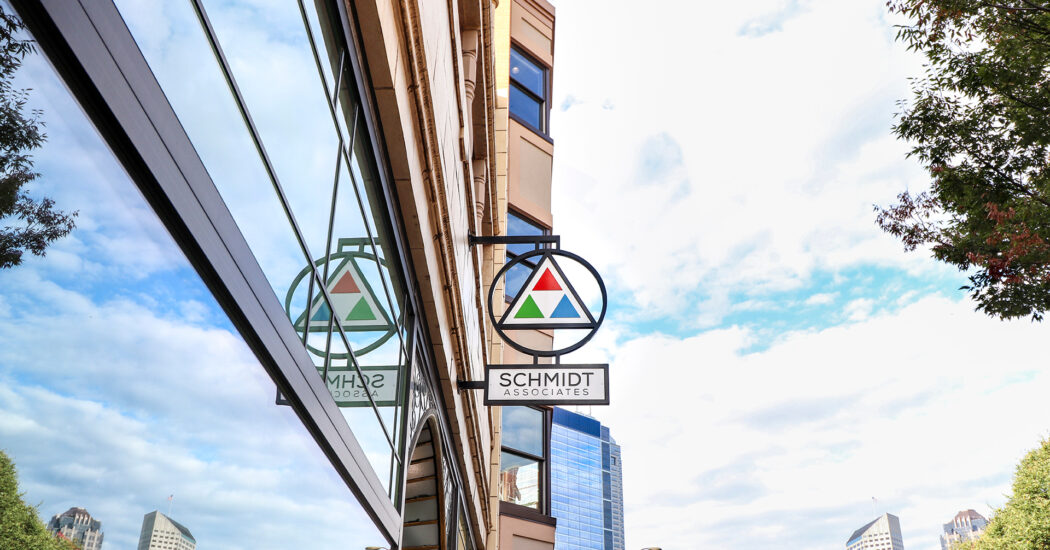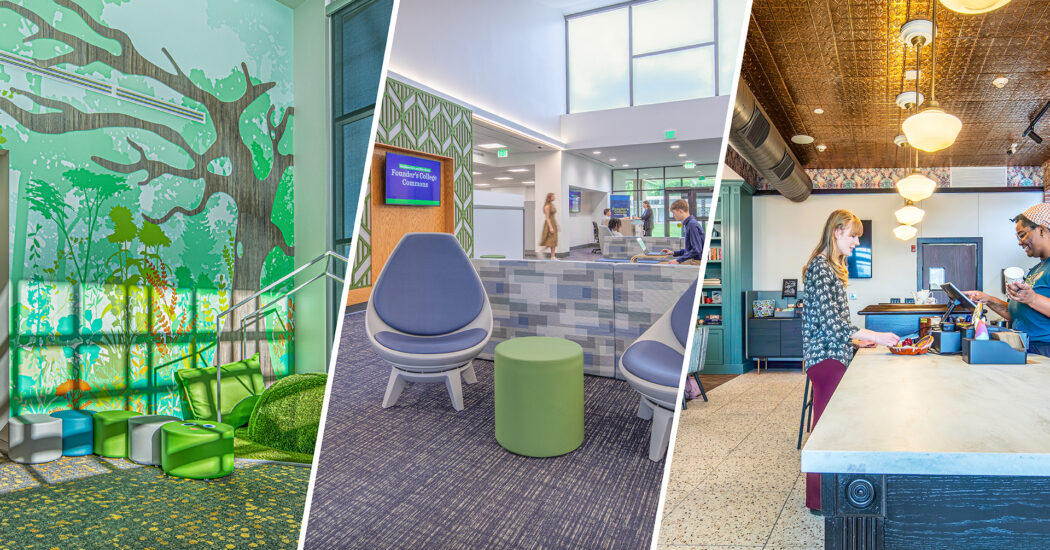Advancing Engineering Education: Unveiling the E.S. Witchger School of Engineering Building
-
Category
Studio-Higher Ed, Perspectives, Innovation -
Posted By
Eric Broemel -
Posted On
Oct 10, 2023
According to Conexus Indiana, ongoing engineering and advanced manufacturing talent shortages in the state are resulting in a staggering $6.8B in lost tax revenue. As a top 30 regional Midwest university and a top 5 Best Value and Most Innovative University, Marian University is poised to address the challenge, creating the E.S. Witchger School of Engineering to provide students with a top-ranked engineering education and prepare them for successful careers and transformative leadership.
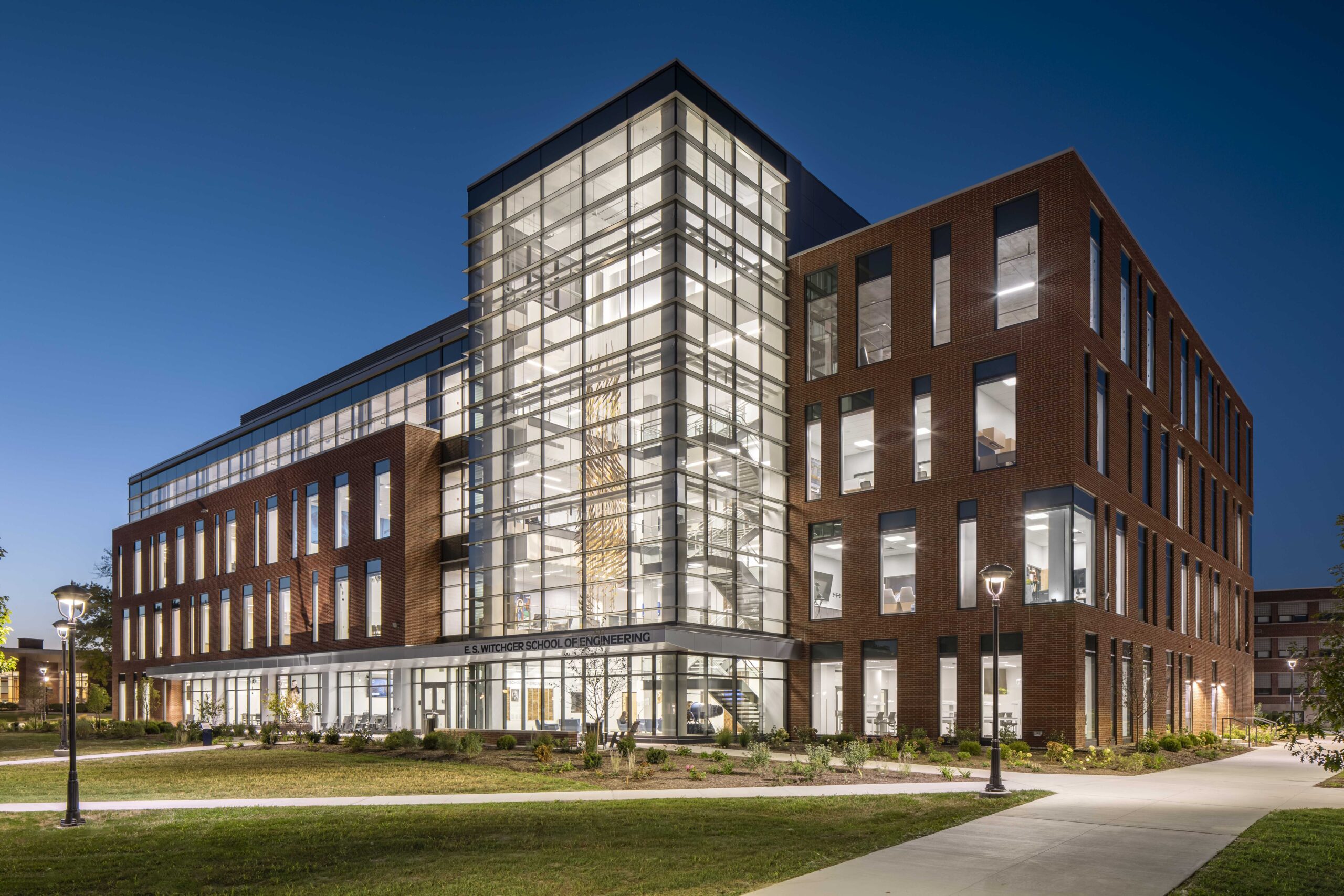
The new engineering building is a state-of-the-art engineering teaching facility featuring cutting-edge labs, high-tech classrooms, and collaborative learning spaces to meet the growing demand for STEM-related programs. As the engineer-of-record, Schmidt Associates was tasked with creating rich learning environments and comfortable spaces in a highly energy-efficient building. Follow us as we go behind the scenes.
Our Innovative Design Approach
At the E.S. Witchger School of Engineering, innovation is central to its success. Notable features include:
- Laboratory-grade air handling systems with hydronic energy recovery loops to efficiently recover heating and cooling that can be reused in the building.
- High-performance air handling units equipped with two levels of air filtration and UV lights to protect against bio-growth for a healthy environment.
- Low-temperature air distribution in office areas conserves energy while enhancing thermal comfort for occupants.
- High-efficiency condensing gas boilers provide high-efficiency heating comfort and dehumidification.
- Enhanced Commissioning including building envelope testing helps minimize air leakage for optimal performance.
- LED lighting and zoned lighting control reduce utility consumption and carbon emissions, promoting sustainability.
- Specialized plumbing systems outfitted with vacuum, natural gas, and compressed central air systems for labs.
Thanks to these sustainable details, the E.S. Witchger School of Engineering is expecting to receive LEED Silver certification, underscoring our design commitment to environmental responsibility.
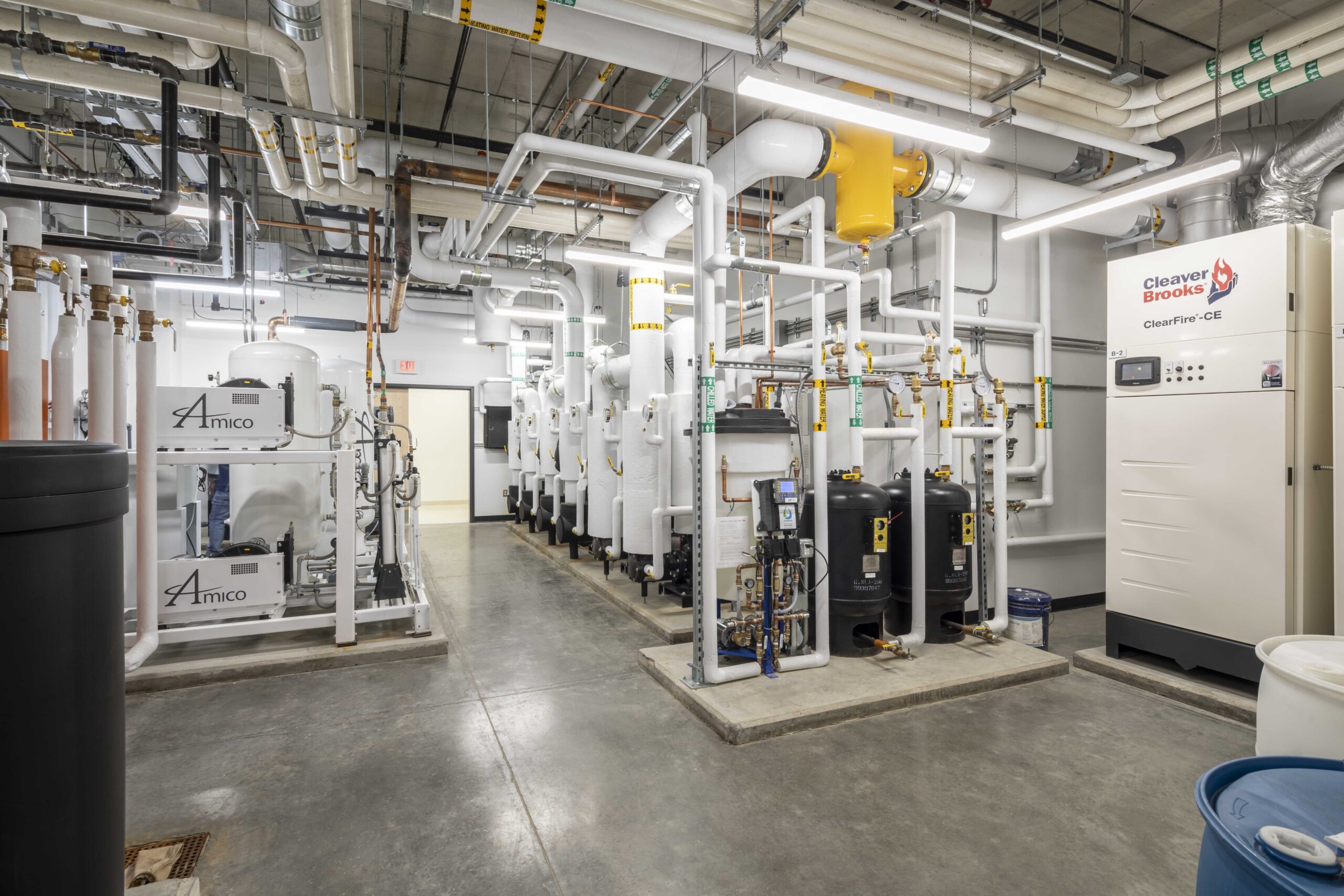
Connecting Academia, Industry, and Community
In an era defined by engineer shortages, environmental challenges, and an urgent need for sustainable solutions, Marian University is leading the way as a shining example, showcasing design elements that reduce the building’s environmental impact and provide students with invaluable hands-on experiences. From chemical and electronic engineering labs, flex labs, makerspaces, and sophisticated centralized mechanical, engineering, and plumbing (MEP) systems, the Witchger School of Engineering is setting new standards in energy efficiency and environmental responsibility.
“Our goal at the E.S. Witchger School of Engineering is to build programs that serve the nation, world, and society,” Founding Dean Binh Q. Tran said. “In an ever-evolving world where technology and innovation drive progress, the demand for skilled engineers, now more than ever continues to soar, and that means we must invest in education and training.”
Hands-On Learning Spaces: A Gateway to Sustainable Innovation
At the Witchger School of Engineering, experiential learning is a core emphasis. This is particularly evident in the innovative design lab, where students have opportunities to engage in real-world simulations utilizing the latest equipment, including wind tunnels, diesel engines, material testing labs, and more. By fostering a deep understanding from day one, students are being exposed to the latest practices while being empowered to become detailed problem solvers.
Moreover, the school’s commitment to bridging the gap between academia, industry, and the community is evident through partnerships with leading companies, engineering camps for young people, internships with forward-looking companies, and a strong workforce pipeline for Indiana that will likely keep students in the state after graduation to live, work, and positively contribute to the previously mentioned shortages.
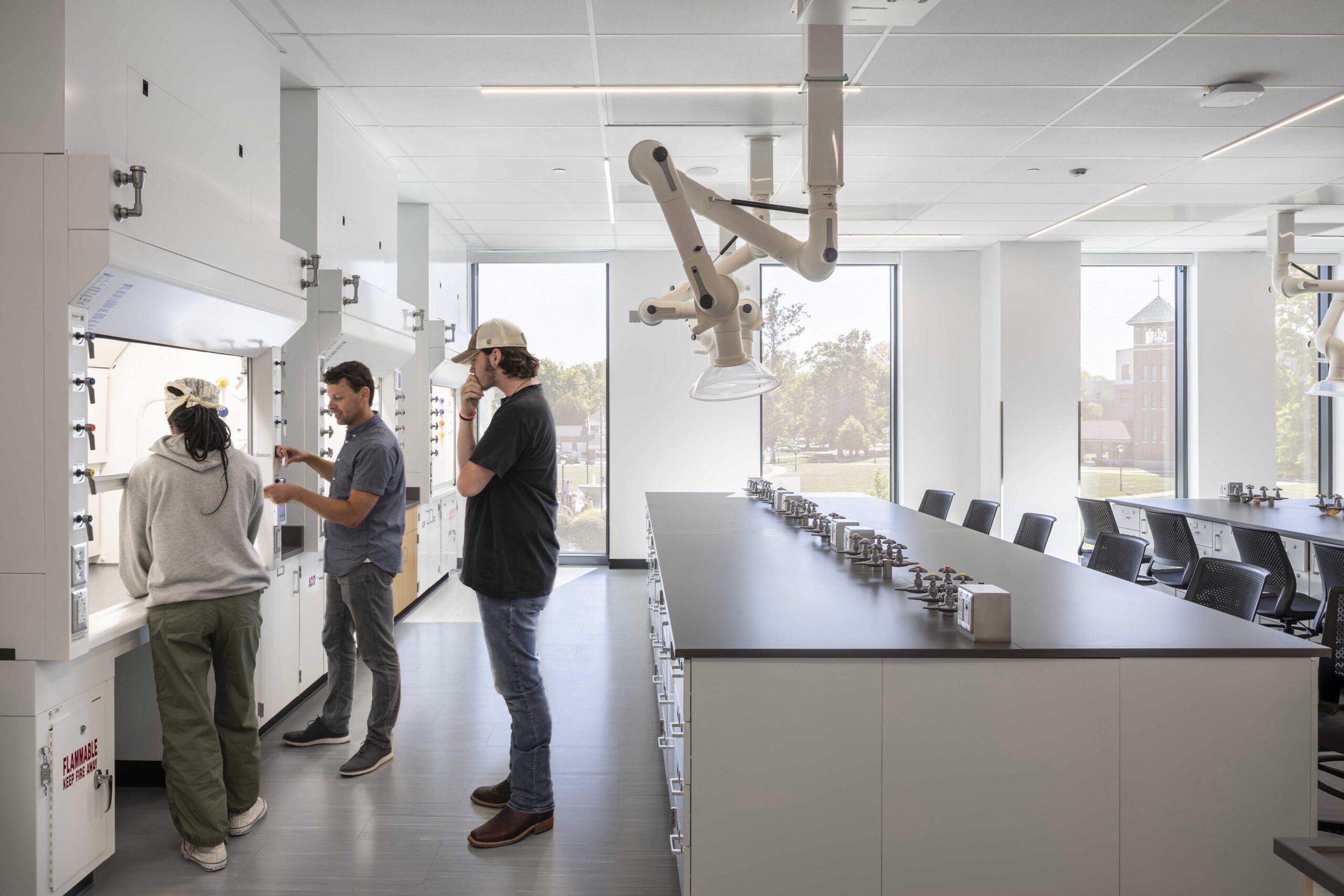
The Building Systems as a Teaching Tool
One of the most unique opportunities for the students in the Witchger School of Engineering is to study and optimize the MEP systems of the building. The systems are designed to be easily accessible physically, including the main boiler room and rooftop equipment area, with extra room to maneuver and teach in the space, and virtually through the web-based building control system. Students can gain hands-on experience in operating and optimizing the building’s centralized heating and cooling systems, learning about energy efficiency, digital control systems, and sustainable HVAC practices.
Centralized Systems: Pioneering Energy Simplicity and Efficiency
The Witchger School of Engineering stands out for its commitment to sustainable practices and its two energy-efficient systems.
The labs are served by a rooftop air handling unit specifically designed for the high air change and ventilation rates. The office areas are served by a secondary rooftop air handling unit that delivers a smaller volume of low-temperature air that heats, cools, and ventilates those areas efficiently. The systems are controlled by a modern centralized energy management system that optimizes lighting, heating, and cooling based on occupancy and natural lighting conditions. This system reduces energy waste and minimizes the building’s carbon footprint.
In addition, every space within the Witchger School of Engineering has been designed to be easily modified. Combined with easy maintenance and energy reduction, the ability to modify spaces is one of the greatest and most distinguishable attributes of the building, allowing it to serve students well into the future.
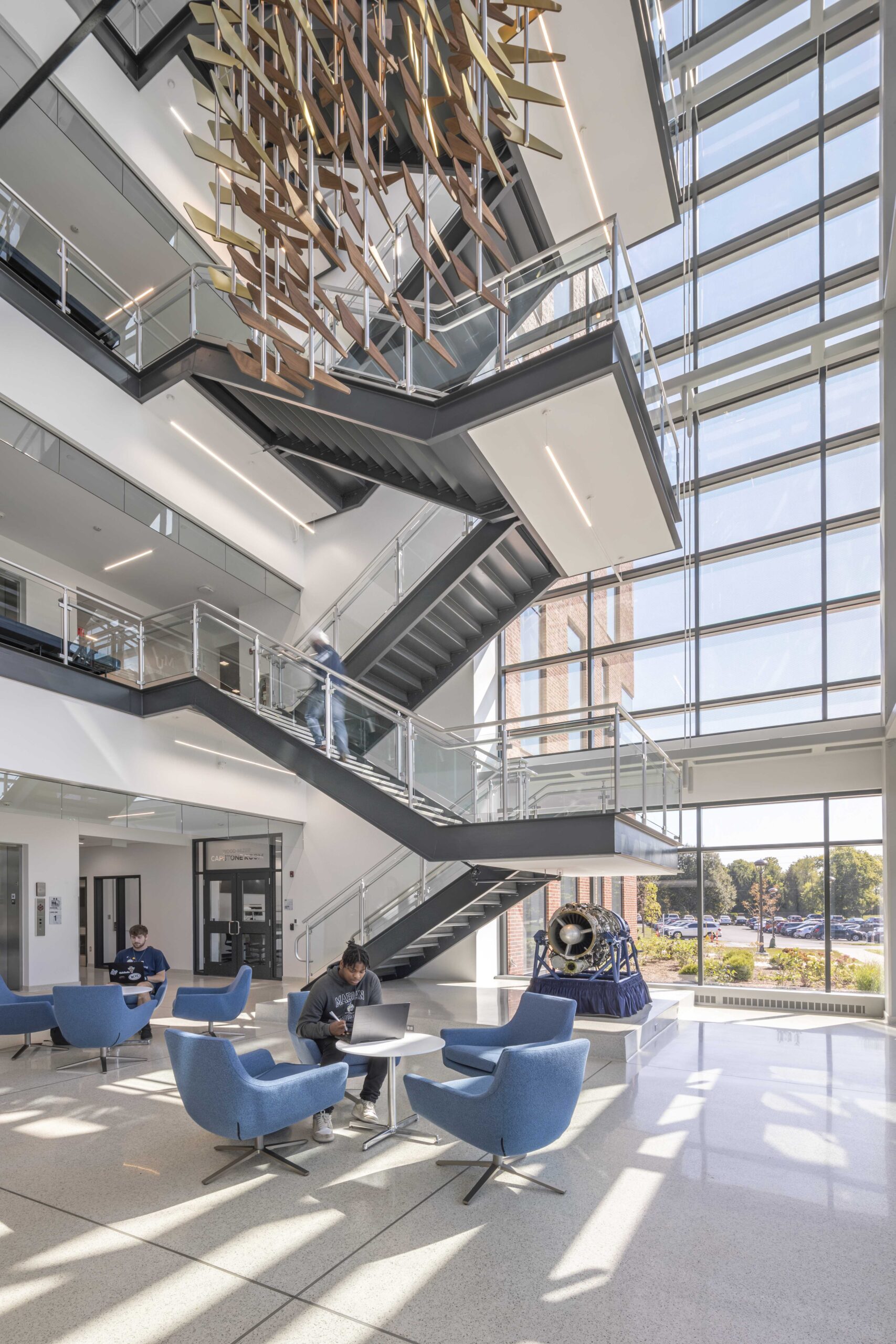
Future Flexibility and a Winning Partnership
As the engineer-of-record, Schmidt Associates engineers had the opportunity to collaborate with a savvy team of professionals who welcomed this innovative design, which enabled the delivery of a modern engineering school. Additionally, the building’s fourth floor was intentionally left open for future expansion as the school grows. Finally, valuable partnerships with leading companies have allowed the E.S. Witchger School of Engineering to develop a strong workforce pipeline by preparing highly skilled graduates who have been exposed to everyday industry challenges.
Elevate the future of education together. Let’s talk about how our design expertise can bring innovation to your projects. Stay connected for insights on transformative solutions across the higher education spectrum.





